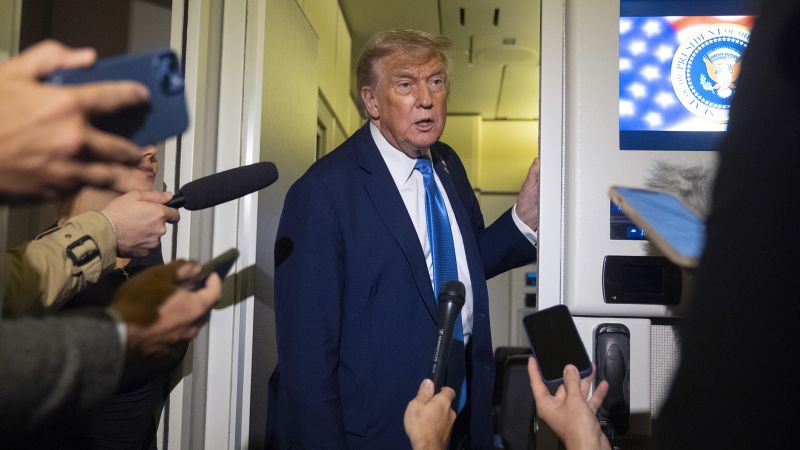Could A US Attack On Iran Ignite A Regional War? Analysis And Concerns

Welcome to your ultimate source for breaking news, trending updates, and in-depth stories from around the world. Whether it's politics, technology, entertainment, sports, or lifestyle, we bring you real-time updates that keep you informed and ahead of the curve.
Our team works tirelessly to ensure you never miss a moment. From the latest developments in global events to the most talked-about topics on social media, our news platform is designed to deliver accurate and timely information, all in one place.
Stay in the know and join thousands of readers who trust us for reliable, up-to-date content. Explore our expertly curated articles and dive deeper into the stories that matter to you. Visit Best Website now and be part of the conversation. Don't miss out on the headlines that shape our world!
Table of Contents
Could a US Attack on Iran Ignite a Regional War? Analysis and Concerns
The possibility of a US military strike against Iran remains a persistent concern, fueling anxieties about a potential regional conflagration. While direct military action currently seems unlikely, the escalating tensions in the Middle East warrant a careful examination of the potential consequences. This analysis explores the complex web of alliances, regional rivalries, and potential responses that could transform a targeted attack into a wider, devastating conflict.
The High Stakes of Military Intervention:
Any US military action against Iran, even a limited one, carries immense risks. Iran possesses a sophisticated network of proxy forces across the region, including Hezbollah in Lebanon, various Shia militias in Iraq, and the Houthis in Yemen. These groups, deeply embedded within their respective countries, could retaliate directly or indirectly, potentially triggering a cascade of events.
Potential Scenarios and Escalation Pathways:
-
Direct Retaliation: Iran's Islamic Revolutionary Guard Corps (IRGC) possesses a significant arsenal of ballistic missiles capable of reaching US military bases in the region and potentially even targets within the US itself. Such attacks would almost certainly escalate the conflict.
-
Proxy Warfare: A more likely scenario involves increased activity by Iranian proxies. Hezbollah could launch attacks against Israeli targets, while Iraqi militias might target US forces stationed in the country. This could draw other regional actors into the conflict.
-
Regional Entanglement: The involvement of other nations is a major concern. Saudi Arabia and the UAE, often at odds with Iran, might feel compelled to intervene, further widening the conflict. Israel, facing a direct threat from Hezbollah, could also take preemptive action.
-
Global Implications: A regional war involving major players would have significant global ramifications, potentially impacting oil prices, international trade, and global security. The humanitarian crisis resulting from such a conflict would be catastrophic.
Beyond Military Action: The Importance of Diplomacy
While the threat of military action looms large, it's crucial to remember the importance of diplomatic efforts. Negotiations, even in the face of significant challenges, offer a path to de-escalation and prevent a wider conflict. Continued engagement with international partners and a commitment to finding peaceful solutions are critical to avoiding a disastrous war.
Analyzing the Risks: Weighing the Potential Costs
The potential costs of a US attack on Iran far outweigh any perceived benefits. A regional war could lead to:
-
Massive Loss of Life: Civilians would bear the brunt of any conflict, suffering immense casualties and displacement.
-
Economic Devastation: The disruption of oil supplies and trade routes would have a significant global impact, triggering economic instability.
-
Destabilization of the Region: The already fragile stability of the Middle East would be shattered, leading to prolonged chaos and instability.
-
Nuclear Proliferation: A heightened sense of insecurity could lead to increased efforts by countries in the region to develop nuclear weapons.
Conclusion: The Urgent Need for Caution
The risk of a US attack on Iran igniting a regional war is substantial. Careful consideration must be given to the potential consequences, and diplomatic solutions should be prioritized above military action. The international community has a responsibility to actively pursue peaceful resolutions and prevent a conflict that could have devastating global consequences. The future of the Middle East, and indeed global security, hangs in the balance.

Thank you for visiting our website, your trusted source for the latest updates and in-depth coverage on Could A US Attack On Iran Ignite A Regional War? Analysis And Concerns. We're committed to keeping you informed with timely and accurate information to meet your curiosity and needs.
If you have any questions, suggestions, or feedback, we'd love to hear from you. Your insights are valuable to us and help us improve to serve you better. Feel free to reach out through our contact page.
Don't forget to bookmark our website and check back regularly for the latest headlines and trending topics. See you next time, and thank you for being part of our growing community!
Featured Posts
-
 On Air Meltdown Fox News Ends Interview With Seemingly Inebriated Guest
Jun 19, 2025
On Air Meltdown Fox News Ends Interview With Seemingly Inebriated Guest
Jun 19, 2025 -
 Catherine Zeta Jones Thrilled As Daughter Carys Douglas Returns Home
Jun 19, 2025
Catherine Zeta Jones Thrilled As Daughter Carys Douglas Returns Home
Jun 19, 2025 -
 Pga Tour Announces 2026 Leadership Transition Monahan Out Rolapp In
Jun 19, 2025
Pga Tour Announces 2026 Leadership Transition Monahan Out Rolapp In
Jun 19, 2025 -
 Text Message Mishap Jesse Tyler Ferguson And Martha Plimptons Mom
Jun 19, 2025
Text Message Mishap Jesse Tyler Ferguson And Martha Plimptons Mom
Jun 19, 2025 -
 La Norris Sellers Commitment Why He Turned Down Major Nil Deals
Jun 19, 2025
La Norris Sellers Commitment Why He Turned Down Major Nil Deals
Jun 19, 2025
